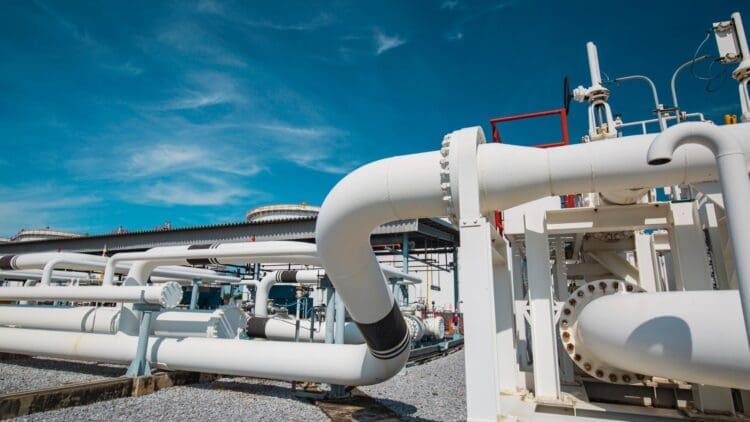African nations are aiming to increase spending in the energy sector across both the oil and gas sectors, while remaining committed to reforming the sector to meet the calls for integrating the renewable sector. Leading the charge is the North African nation of Algeria. At a recent event that brought together stakeholders in the African and Mediterranean energy sectors, Algeria committed $60 billion to expand upstream oil and gas operations in the region, which has vast amounts of natural resources available.
Algeria’s $60 billion expansion of its upstream oil and gas sectors exemplifies the potential in the region
The global energy industry stakeholders are all singing the same song at the moment. Across the energy sector, industry stakeholders and experts are calling for expansion of the traditional oil and gas sectors, which have served humanity quite well so far, while simultaneously calling for more investments in practical renewable energy projects that move beyond the memorandum of understanding phase towards actual commissioning of projects.
At the opening of the 13th Africa & Mediterranean Energy and Hydrogen Exhibition and Conference (NAPEC 2025) in Oran, Algeria’s Energy and Mines Minister, Mohamed Arkab, announced his nation would be investing an eye-watering $60 billion to expand its upstream oil and gas sector, while also calling for more work to be done to integrate renewable energy capacity.
The Minister noted that approximately 80% of that astonishing investment will go to hydrocarbon exploration and production. Placing more importance on the oil and gas sector in the region.
“Natural gas has become a transition fuel and a key part of the global energy equation,” – Algeria’s Energy and Mines Minister Mohamed Arkab
Additionally, Minister Arkab said that Algeria’s state-owned energy company, Sonatrach, aims to cut gas flaring to below 1% by 2030. He also highlighted the successful Hassi Messaoud refinery, located about 800 km southeast of Algiers. Algeria’s hydrocarbon reserves span across 200 oil and gas fields, making it a sustainable investment should any company be looking at a long-term return.
Algeria is not leaving the renewable energy sector behind, despite the sizable investment in the oil and gas sector
During his opening speech at the 13th Africa & Mediterranean Energy and Hydrogen Exhibition and Conference, Minister Arkab noted Algeria’s commitment to the renewable energy sector, adding that Algeria has already launched projects to add 3,200 megawatts of renewable capacity, which underscores Algeria’s efforts to diversify its energy mix.
“We are committed to the energy transition while maintaining gas as a strategic resource,” – Algeria’s Energy and Mines Minister Mohamed Arkab
Algeria’s commitment to invest in the oil and gas sector is in sharp contrast to what is taking place in Europe, which has seen nations shutting down coal mines, some for the last time. Rachid Hachichi, CEO of Algeria’s state-owned energy company, Sonatrach, praised his nation’s approach, underlined by a five-year investment plan. Algeria aims to invest $80 billion by the end of 2030.
“This ambitious program underscores our firm commitment to ensuring Algeria’s energy security and contributing to the global energy transition,” – Sonatrach CEO Rachid Hachichi
Algeria’s substantial investment exemplifies the efforts of oil and gas-rich nations in the region
Many nations in the North African region are focusing on investing and upgrading the existing oil and gas sector, while maintaining a perpetual balance with integrating the renewable energy sector. The conventional fossil fuel sector has been hit hard in recent months, evidenced by China closing several coal mines in Inner Mongolia due to oversupply issues. The world’s leaders are developing a cooperative narrative towards the energy sector, calling for the need to balance the need to upgrade and modernize the oil and gas sector, while placing more urgency on implementing measures that propel the renewable energy sector towards actual practicality.






